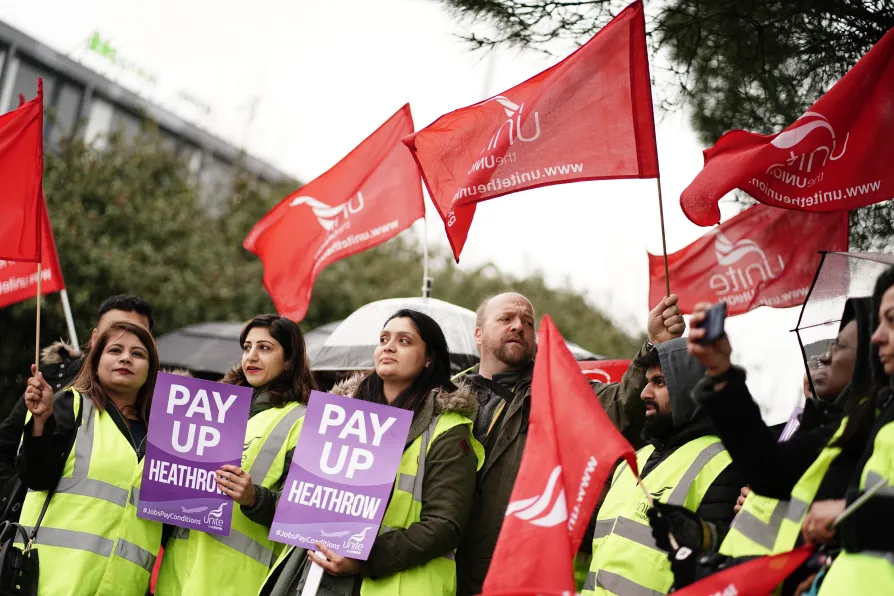
 Security guard members of the Unite union on the picket line at Heathrow Airport, London, March 31, 2023
Security guard members of the Unite union on the picket line at Heathrow Airport, London, March 31, 2023
COLLECTIVE bargaining rather than weakening a proposed fire-and-rehire ban is the way to ensure proper negotiation of contractual changes, unions and campaigners told the Morning Star today.
Prospect union general secretary Mike Clancy had called for revisions to the ban on fire and rehire in the current Employment Rights Bill, telling the Financial Times that a ban was “essential” but “the government must be careful it doesn’t inadvertently create a veto against all contractual change.”
But Unite general secretary Sharon Graham said the proposed ban needed to be strengthened, not watered down.
“The government’s proposals on fire and rehire are already totally inadequate. Employers will repeatedly claim exceptional circumstances whenever they want to dismiss workers,” she told the Star.
“Decent employers that need to make major changes in the workplace can negotiate with unions to come to an agreement. Any further weakening of the Bill’s provisions will only be used by rogue bosses to mistreat workers.”
P&O Ferries infamously used fire and rehire to sack its entire British crew and replaced it with cheaper agency staff in 2022.
The proposed ban on the practice is aimed at preventing bosses using coercive tactics to cut pay or benefits.
Institute of Employment Rights director James Harrison also called for the Bill’s provisions to be strengthened.
“I agree with Mike Clancy and his members: fire and rehire must be banned,” he told the Star.
“This Employment Rights Bill doesn’t go far enough — it fails to ban the practice outright.
“Pay, terms, or location changes should be negotiated amicably through collective bargaining between unions and employers. This shouldn’t be confused with banning fire and rehire, a deplorable tactic used without notice or negotiation.”
General Federation of Trade Unions general secretary Gawain Little said: "Our affiliates certainly want to see the fire and rehire section of the bill strengthened but they also want to see key decisions such as relocation covered by collective bargaining agreements.
“No-one believes it is right that an employer can move jobs from one city to another without the agreement of employees."
Communist Party industrial organiser Alex Gordon added: “Workers need real power at work to enforce our rights.
“Abolishing fire and rehire should be an easy win for a Labour government.
“It is telling that even this basic measure is caveated in Labour’s Employment Rights Bill.
“Making ‘fire and replace’ and mass job relocation a matter for collective bargaining, rather than employer diktat, would prevent other employers getting away with another P&O disaster.”
The flagship legislation is reportedly unlikely to reach royal assent before the autumn, as parliamentary debates over its provisions drag on in the face of business lobbying to water them down.


















